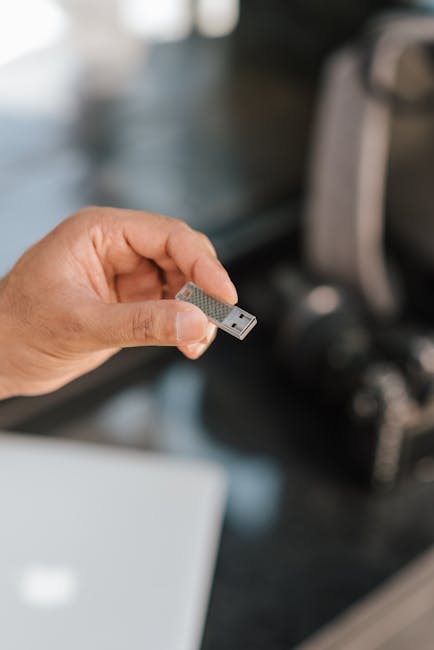Unlock encrypted content
Please enter your SSCE key to initiate on-the-fly decryption.
Decryption key: (Click cancel if you don't have the key)
Copied link to clipboard.
This feature is unavailable for free accounts. Upgrade now and enjoy all Premium benefits.
Go Premium!
This feature is unavailable for free accounts. Upgrade now and enjoy all Premium benefits.
Go Premium!
Please open this page in browser ( Google Chrome or Safari ) to use this feature.
Open In Browser
The Future of Data Security: Sovereignty, Redundancy, and Biohacking.
Random related video for this blog.
Copied share link to clipboard.
In today's digital age, data is the new gold, and individuals and companies alike are constantly seeking ways to protect it. With the increasing prevalence of cybercrime, data breaches, and hacking, the need for robust data security measures has become more critical than ever. In this article, we will explore some of the latest trends and technologies in data security, including data sovereignty, file redundancy, and biohacking.
Data Sovereignty: The Key to Protecting Your Data
Data sovereignty is the concept of keeping data within a specific geographical region, subject to the laws and regulations of that region. This approach is becoming increasingly popular as more countries introduce data protection laws that require companies to store data locally. For example, the European Union's General Data Protection Regulation (GDPR) requires companies to store personal data of EU citizens within the EU.
Data sovereignty is essential for protecting sensitive information from prying eyes, and it is particularly important for companies that deal with sensitive data such as healthcare, finance, and government agencies. By keeping data within a specific region, organizations can ensure that they comply with local data protection laws and reduce the risk of data breaches.
One way to achieve data sovereignty is through the use of cloud storage providers that offer local data centers. For example, FileLu cloud storage offers data centers in Europe, North America, and Asia, allowing users to store their data within their region of choice. FileLu also offers end-to-end encryption for added security, ensuring that data is protected both in transit and at rest.
File Redundancy: Ensuring Data Availability
File redundancy is the practice of creating multiple copies of data to ensure that it is always available, even in the event of a hardware failure or data breach. This approach is particularly important for companies that rely heavily on data, such as those in the healthcare and finance industries.
One way to achieve file redundancy is through the use of online backup services. These services automatically back up data to remote servers, ensuring that it is always available even in the event of a disaster. For example, FileLu offers online backup services that allow users to back up their data automatically, ensuring that it is always available when they need it.
Another way to achieve file redundancy is through the use of FTP backup services. These services use the File Transfer Protocol (FTP) to transfer files to remote servers, ensuring that they are always available even in the event of a hardware failure. For example, FileLu offers FTP backup services that allow users to transfer files to remote servers automatically, ensuring that they are always available when they need them.
Biohacking: The Future of Data Security?
Biohacking is the practice of using technology to enhance human capabilities. While it is still in its early stages, biohacking has the potential to revolutionize data security by allowing individuals to protect their data using their own biology.
One example of biohacking is the use of biometric authentication. Biometric authentication uses unique physical characteristics, such as fingerprints or facial recognition, to verify a user's identity. This approach is more secure than traditional password-based authentication, as it is much more difficult for an attacker to replicate a user's physical characteristics.
Another example of biohacking is the use of genetic engineering to create data storage devices. Scientists have already created DNA-based data storage devices that can store vast amounts of data in a small space. While this technology is still in its early stages, it has the potential to revolutionize data storage by allowing individuals to store vast amounts of data within their own DNA.
Conclusion
Data security is an ever-evolving field, and it is critical that individuals and companies stay up-to-date with the latest trends and technologies. By using data sovereignty, file redundancy, and biohacking, individuals and companies can protect their data from prying eyes and ensure that it is always available when they need it.
FileLu cloud storage offers a range of services that can help individuals and companies protect their data, including online backup, FTP backup, and end-to-end encryption. With plans ranging from 10 GB to 500 TB, FileLu offers a range of options to suit any budget. So why not try FileLu today and take the first step towards securing your data?
File transfer, FTP backup, Upload video, Auto camera upload, Cloud storage, Online backup, Encryption file sharing, Large files transfer, Upload files, Share file, Photo upload, Video sharing site, Free file upload
By Amelia Isabella.
Email: [email protected]
Related
Genetic Modification and Lidar Technology: Advancements in File Management and...
July 13, 2023
Read More
Data Mirroring Across Multiple Data Centers: Ensuring Data Redundancy and...
June 17, 2023
Read More
Intelligent File Tagging and Cross-Device File Synchronization: Streamlining Your Digital...
June 17, 2023
Read More
Data Redundancy: Advanced Weaponry for Autonomous Vehicles and Space Data...
July 18, 2023
Read More
Popular
Effective Project Management Software for Remote Work: Ensuring Data Security...
May 11, 2025
Read More
Exploring the Future of File Sharing: Augmented Humans, Cryptocurrency, and...
May 14, 2025
Read More
Latest
Exploring the Future of File Sharing: Augmented Humans, Cryptocurrency, and...
May 14, 2025
Read More
Effective Project Management Software for Remote Work: Ensuring Data Security...
May 11, 2025
Read More
Innovative File Collaboration and Secure Cloud Storage Solutions for Modern...
April 27, 2025
Read More
The Future of Technology: Automation, Cybersecurity, and Collaborative Innovations in...
April 20, 2025
Read More
The Future of Technology: Exploring AI, Biotechnology, and Revolutionary Data...
April 9, 2025
Read More
The Future of Data Management: Exploring Cloud Storage, Voice Assistants,...
April 6, 2025
Read More
The Future of Technology: Exploring Emerging Innovations and Their Impact...
March 30, 2025
Read More
The Future of File Management: Exploring User-Friendly Technologies and Their...
March 26, 2025
Read More




























